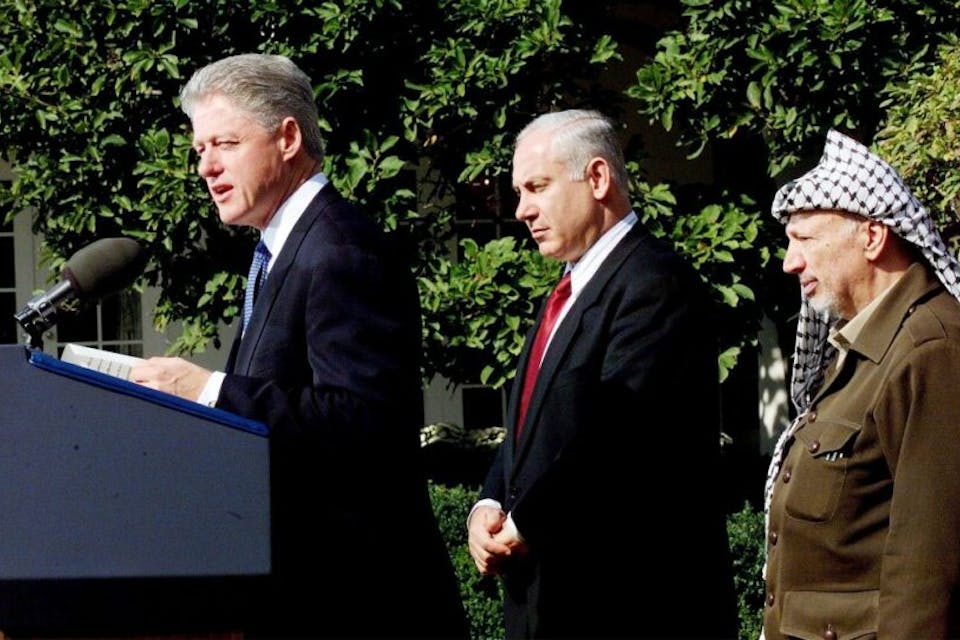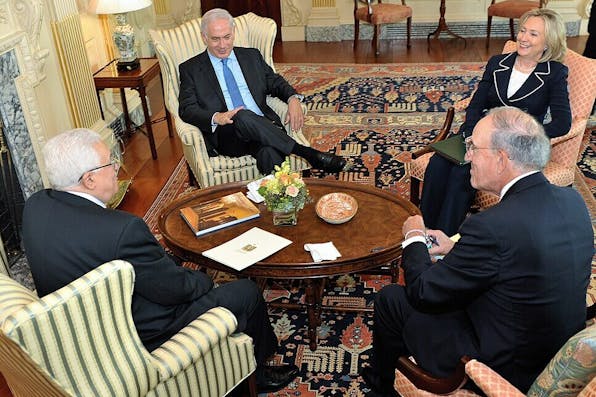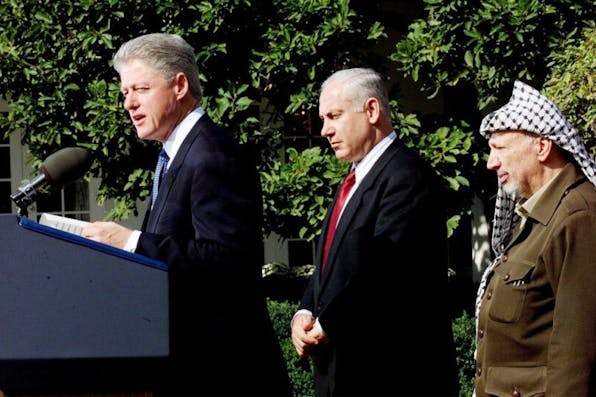
October 28, 2024
The Peace Process Failed, but Its Bad Assumptions Live On
How mistaken beliefs about human nature contributed to flawed strategy.
Shany Mor’s essay identifies four “concepts” that he believes blinded us to the approaching disaster of October 7. The first is what he sees as Benjamin Netanyahu’s tendency to inertia, the second is the political project of religious settlers, the third is the lingering effect of the “peace process,” and the last the warped structure of political sovereignty in Gaza by which outside powers take financial responsibility for the well-being of the population, freeing the actual rulers to concentrate on terrorism.
Of the four, the third, which points to the faulty logic of the so called “peace process,” is, I think, most convincing—which is why the second, blaming religious settlers, is the least so. Many Israelis feel October 7 vindicated the settlers: had we not evacuated the Gaza Strip in 2005 none of this would have ever come about. That’s a hard point to dispute.
That said, Mor’s insight into the lingering effects of the defunct peace process is profound. Not the process itself, but the frame of mind that animated it, continues to inform Israeli, American, and European actions—political, administrative, and military—in unexpected ways; it even informs the actions of the peace process’s opponents.
Responses to October ’s Essay

October 2024
The Strategic Failures of October 7, One Year Later: A Symposium
By The Editors
October 2024
Yes, Bad Policies Paved the Way to October 7. But What If They Were the Only Policies Available?
By Evelyn Gordon
October 2024
Maintaining the Status Quo Is a Choice
By Rafi DeMogge
October 2024
The Peace Process Failed, but Its Bad Assumptions Live On
By Gadi Taub
October 2024
Jews Living in the West Bank Didn’t Undermine Israel’s Security or Empower Hamas
By Cole S. Aronson, Avi Bell
October 2024
Israel’s Mistake Was Viewing Hamas as a Minor Nuisance
By Amnon Lord
October 2024
The Policies of October 6 Kept Israel Safe—Until They Didn’t
By Shany Mor